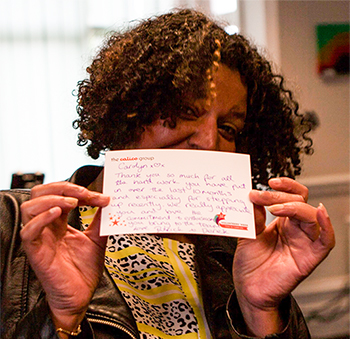As a counsellor and psychotherapist, the past six months have presented several challenges that have required me to adapt the way I approach therapy. Most of my work, until March this year, had been face to face, working in the NHS supporting clients presenting with depression, anxiety, and phobias among other conditions. Lockdown seemed to come fast, leaving me concerned about the impact it could have on the clients who relied on our weekly therapy sessions. Thankfully, I was able to continue providing sessions over phone and video call with good outcomes. While things are slowly returning to normal, things are still not the same as they were before lockdown. Social distancing and PPE have certainly had an impact.
The coronavirus pandemic has been stressful for everyone. Fear and anxiety about the new virus and the possible implications can be overwhelming, causing strong emotions in both adults and children. Public health precautions, such as social distancing, can make people feel isolated and lonely and can increase stress and anxiety.
The institute for Fiscal studies (IFS) found that more than two -thirds of the UK (69%) report feeling somewhat or very worried about the effect COVID-19 is having on their life. The most common issues affecting wellbeing are worry about the future (63%) feelings stressed or anxious (56%) and feelings of boredom (49%).
While some degree of worry is understandable, some groups are experiencing more severe mental ill health as a result of the pandemic. The study went onto find that, taking account of pre-pandemic trajectories, mental health has worsened substantially (by 8.1% on average) as a result of the pandemic. The impact varies significantly between demographics with young adults and women, the groups suffering the worst in terms of mental health pre-pandemic, have been hit hardest.
A recent social study by The University College London found that 90,000 UK adults have monitored mental health symptoms throughout lockdown. The same study found that levels of anxiety and depression fell in early June, just as lockdown measures began to lift. However, anxiety and depression remained highest among young people, those with lower household income, people previously diagnosed with mental illness, people living with children, and those living in urban areas.
At Acorn Transformational Counselling, we understand how difficulties accessing therapeutic support can negatively impact individuals and their families. As a charity, we have looked at ways to make therapy more accessible and affordable, regardless of circumstances. As some people may still feel anxious attending therapy in person, we are continuing to provide confidential online counselling option. We are a self -funded service and offer a sliding scale to cater to individual circumstances.
We are all still adapting to a new normal, and those providing counselling services are no different. After several requests for face to face counselling, I have started to get back into the therapy room: following government guidelines with hand gel, social distancing and face coverings in place.
In all honesty, I did have a few reservations on how these measures would impact therapy, particularly the mandatory face coverings. Not being able to see one another’s face could easily feel impersonal and distant. After all, our faces are part of who we are, part of our humanity. To have our faces covered could hinder any connection with the person I want to help.
However, after my first session back in the therapy room, my concerns quickly faded away. In moments, there was an instant connection between me and the client, seeing emotions and feelings in a two-way connection. I think it was Shakespeare who said, “the eyes are the windows to the soul”. The external noise of the pandemic had soon gone, the focus was once again on helping.
If you are struggling right now, please do not suffer alone. We are there for you. Whether in-person or virtually, support is available today.

